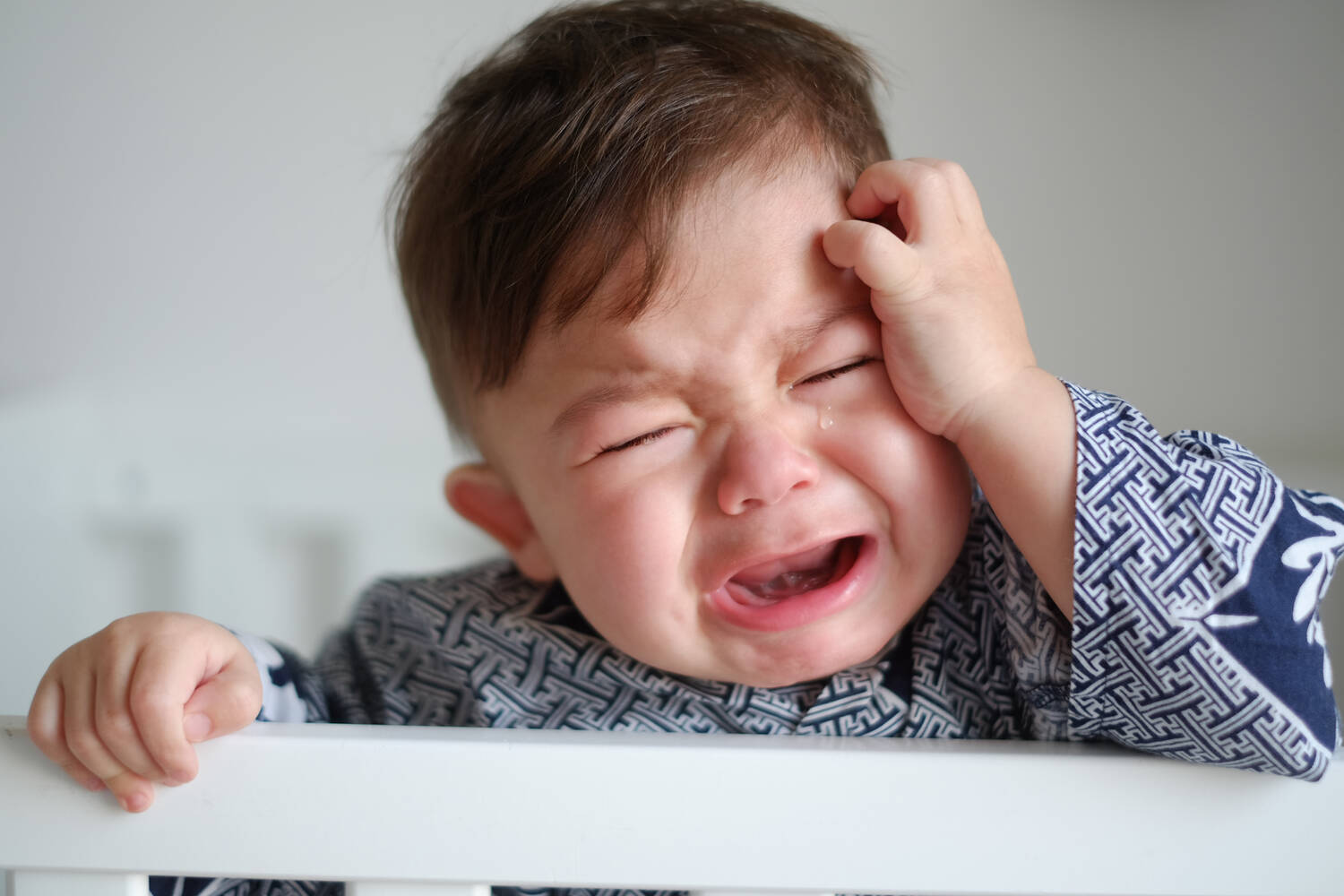
Headaches in toddlers are more common than you think. Though they are not serious for toddlers, they have the potential to hamper their normal lives. It can be a reason for your toddler’s low attendance at school. Hence, it is really important to keep a check on any symptoms bothering your little one.
Like adults, there are many types of headaches in toddlers. A proper medical history and a physical examination can help determine the type and cause of the headache. If your toddler is too young to explain, then it is your responsibility to notice any unusual symptoms or crankiness in them.
In This Article
- What is a Headache?
- How Common Are Headaches in Kids?
- Which Children Are More Likely to Get Headaches?
- How Are Headaches in Children Different From Headaches in Adults?
- How do I Know if my Toddler Has a Headache?
- Types of Headaches in Toddlers
- Symptoms of Headaches in Toddlers
- What Causes Headaches in Kids?
- How Are Headaches Diagnosed in Toddlers?
- How Are Headaches Treated in Toddlers?
- When to Consult a Doctor?
- Tips to Prevent Headaches in Toddlers
- FAQ’s
What is a Headache?
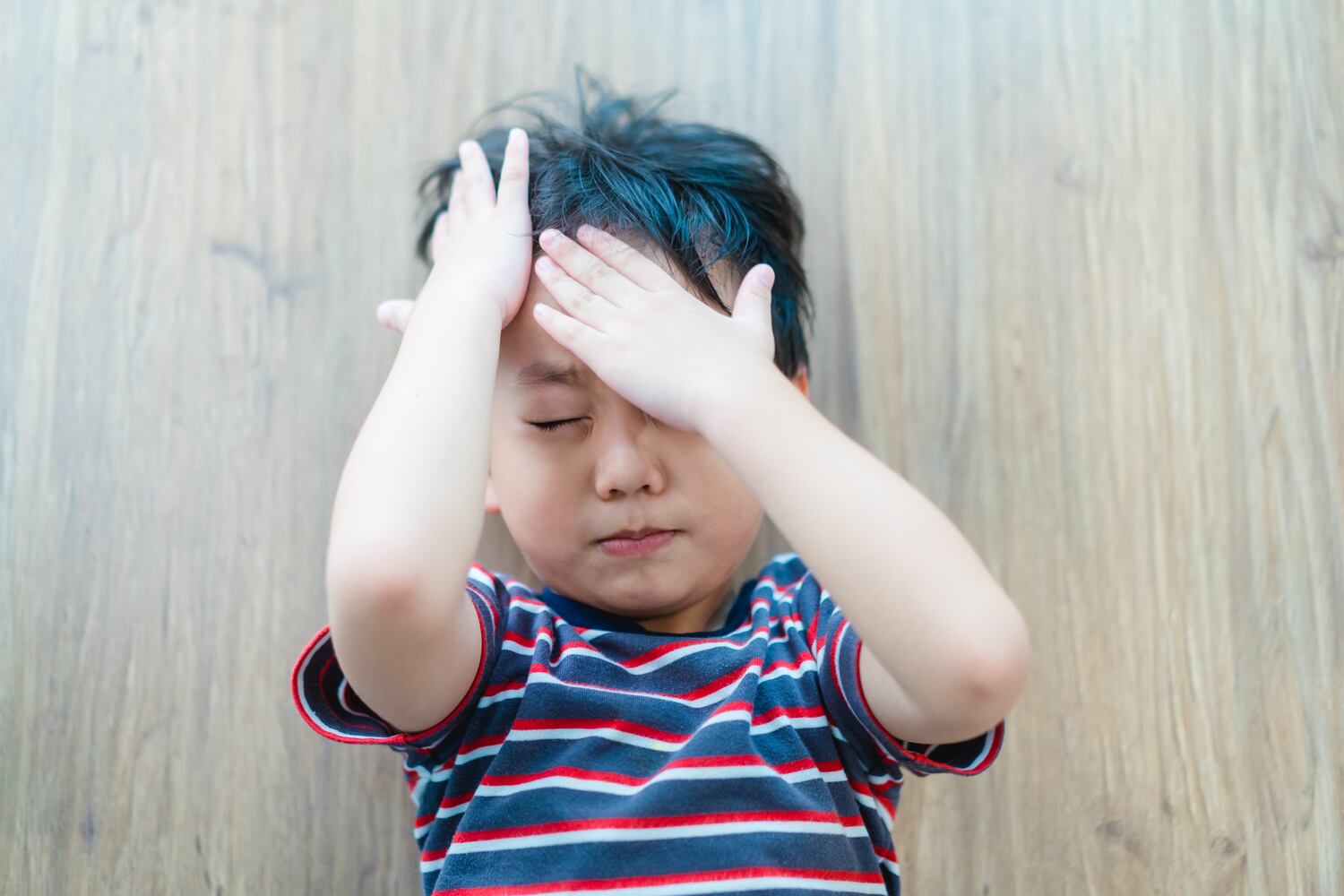
A headache is any discomfort or pain in the head region or face. There are many types of headaches, differing in location, severity, and frequency. It is one of the most common complaints among many school-going kids (1). Some common diseases, like the cold and flu, can also result in headaches in toddlers.
How Common Are Headaches in Kids?
Like adults, headaches in children are also pretty common in little ones. Migraine and tension-type headaches are quite prevalent in the pediatric age group. Migraine occurs in about 3–10% of children and increases with age (2).
Which Children Are More Likely to Get Headaches?
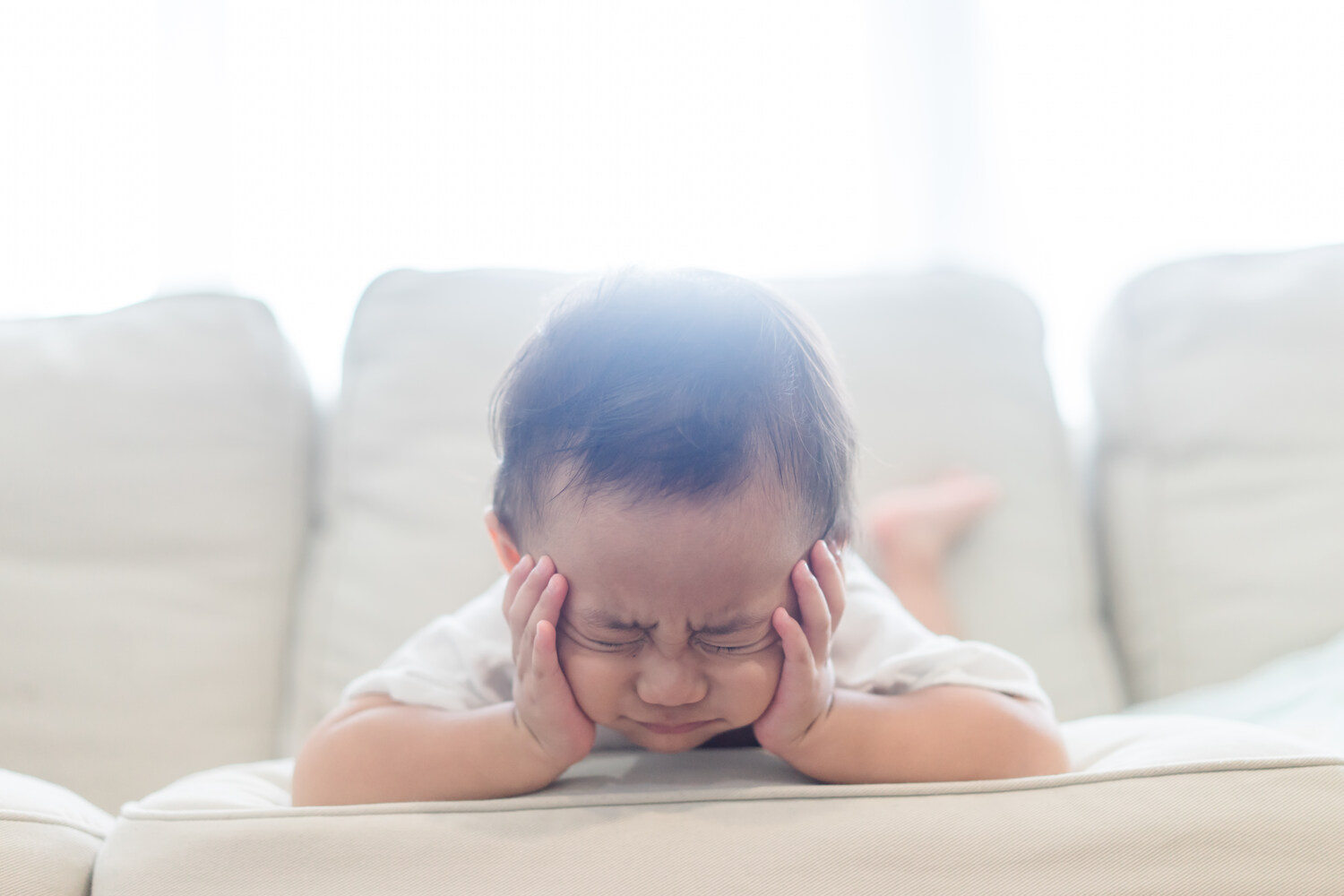
Most of the headaches in toddlers are associated with stress and lifestyle issues. Toddlers with a high level of stress are more likely to get headaches. Your toddler can develop a headache if there is a family history of headaches in any of the immediate relatives (3). Headaches are more common in girls after they reach puberty.
How Are Headaches in Children Different From Headaches in Adults?
Diagnosing a headache in toddlers can be quite tricky as they are unable to express or explain their symptoms. Moreover, at times they are unable to locate the pain and complain of it being all over the head instead of any particular side as that of adults. Unlike adults, the pain does not last long.
How do I Know if my Toddler Has a Headache?
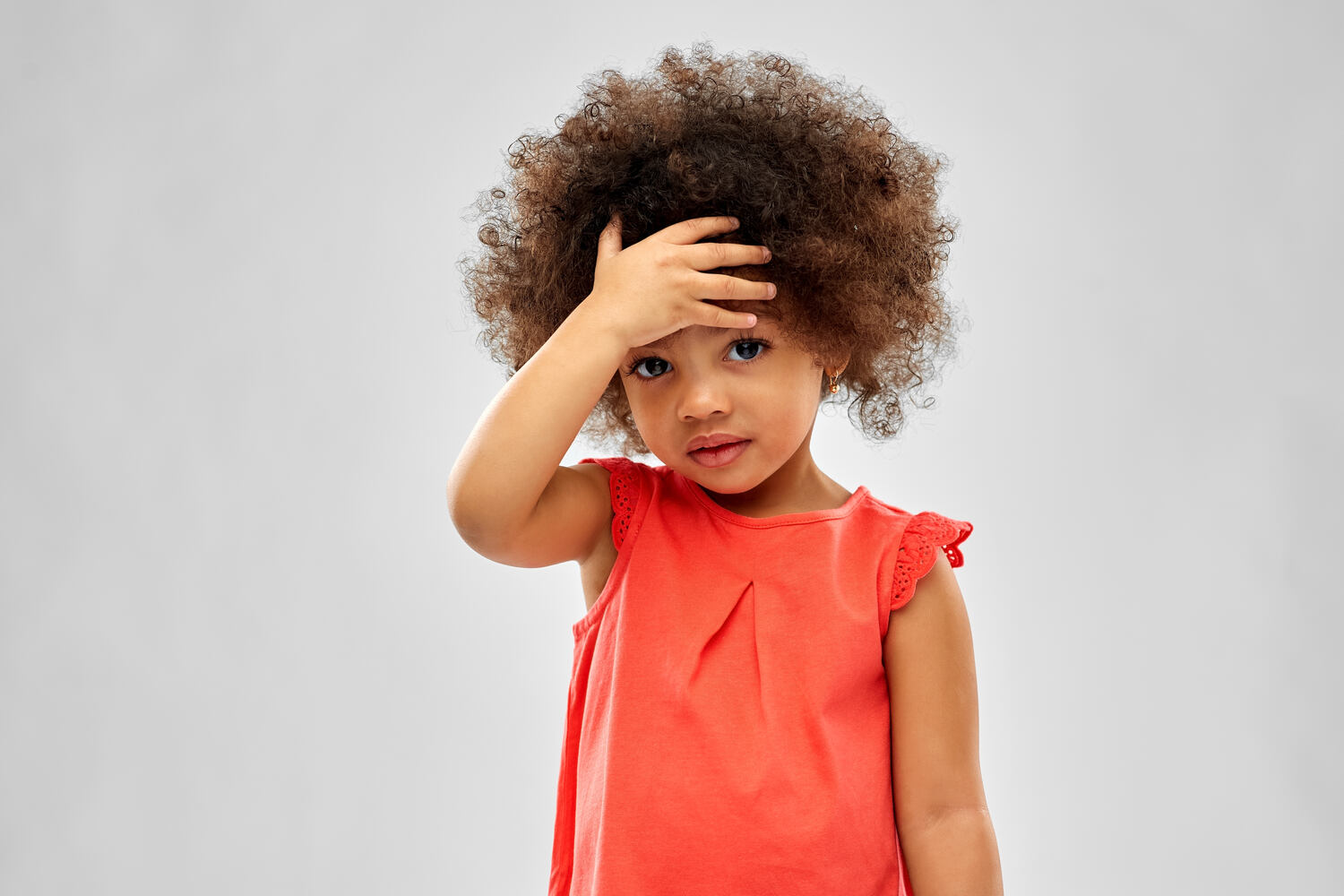
Once a baby turns into a toddler, they can point out their pain to you. However, when it comes to a headache, a toddler may not be able to understand and locate the area of pain, as a headache is often localized to more than one area in the head and face. A toddler, when having a headache, often shows the following signs:
- You will find them holding their head
- They will exhibit low energy and be less active
- Might show irritation to bright lights
- May not like to be touched
- Cannot sleep properly
- Gets more irritated when exposed to loud voices
- Furrowed brow
- Poor appetite
Types of Headaches in Toddlers
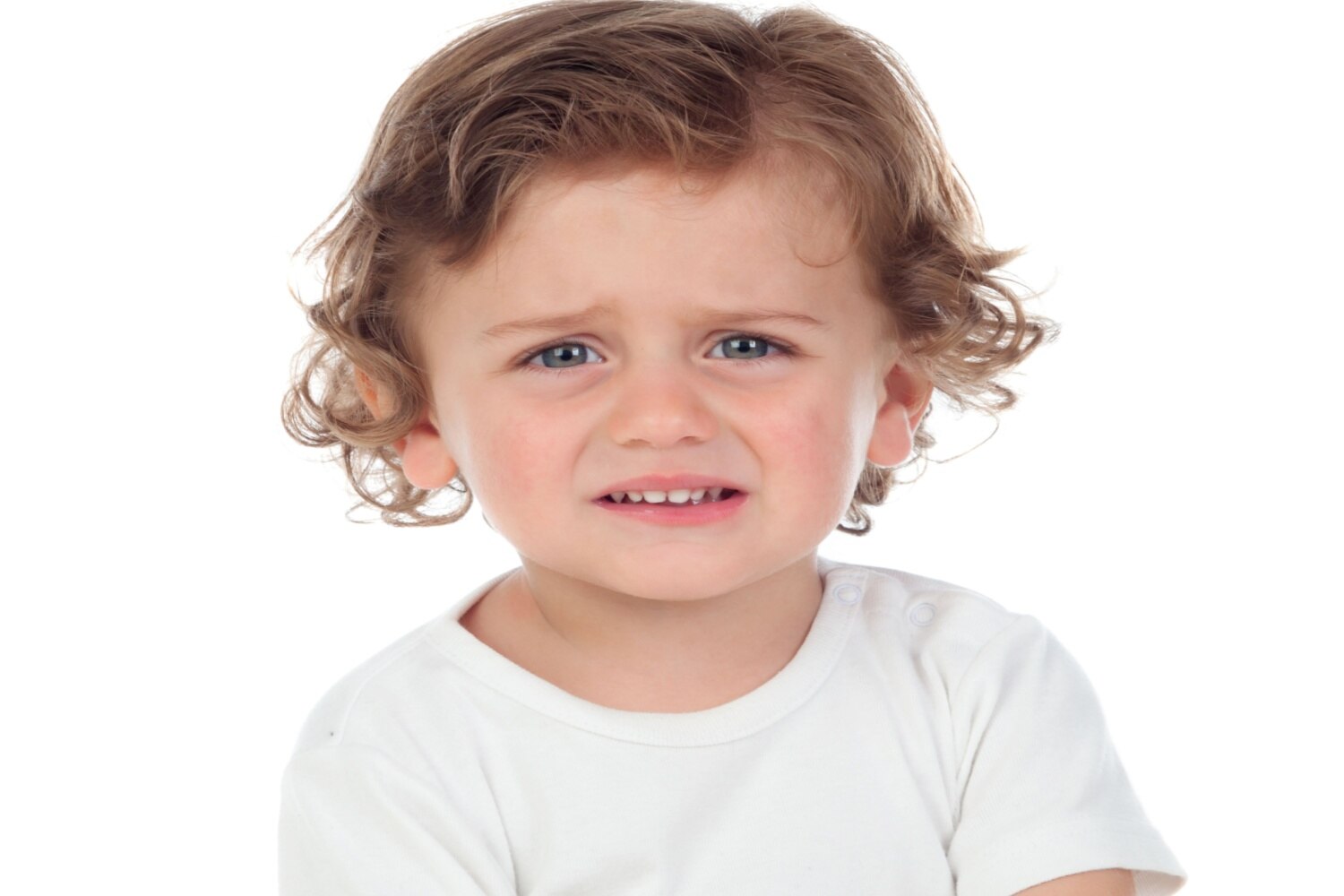
The most common types of headaches found among toddlers are:
1. Tension Headache
Don’t be surprised, as this is a fairly common type of headache among toddlers, and is caused by several emotional and physical stressors. The pain ranges from mild to moderate. A tension-type headache is distinct from a migraine in that it does not cause nausea and vomiting.
2. Cluster Headache
This is very rarely found among toddlers. They usually appear as episodes, ranging from one headache to many in a single day. It presents as a sharp, stabbing pain on one side of the head.
3. Migraine
They usually present with severe headaches. Also, there is an increased sensitivity to light and sound, along with nausea and vomiting. A migraine can be hereditary (4).
4. Secondary Headaches
The causes of these headaches range from a brain tumor, inflammatory diseases like meningitis, and abnormalities of spinal fluid, to an aneurysm (excessive localized swelling of the wall of the artery), or any pathological conditions that cause high pressure on the skull. Secondary headaches are relatively rare among toddlers.
5. Illness or Injury-related Headaches
Viral infections or upper respiratory infections are the most common reasons for the headaches found among toddlers. Minor head injuries that can happen while playing can cause headaches.
The toddler requires immediate medical attention if severe nausea, vomiting, unconsciousness, or other alarming symptoms follow the injury. Other symptoms that surface after an injury, which point to the necessity of immediate attention, are:
- General weakness
- Difficulty speaking
- Difficulty standing or walking
- Disturbance of vision
- Neck pain or stiffness
Symptoms of Headaches in Toddlers
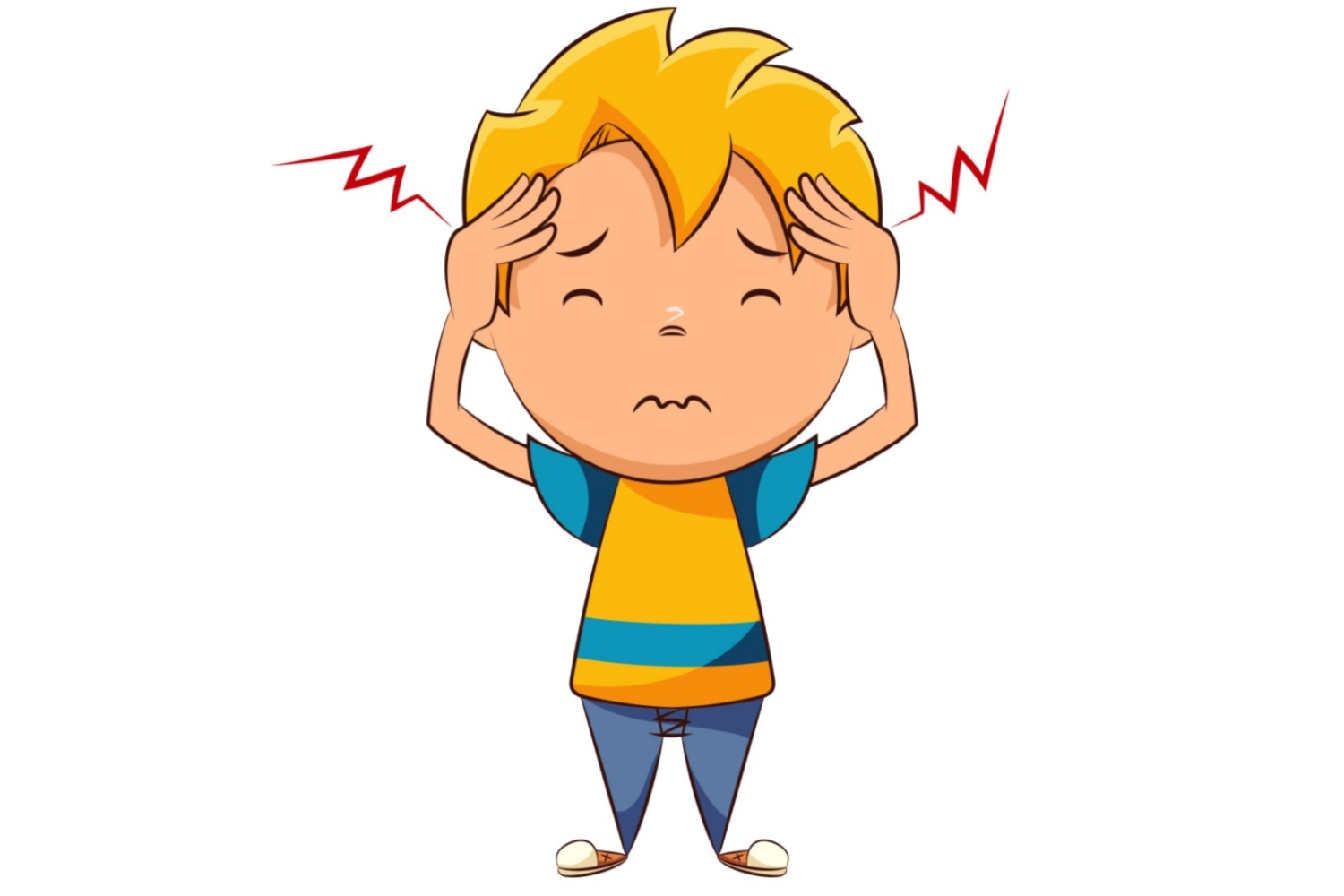
The symptoms vary depending on the type of headache your toddler has. Signs and symptoms of migraine include:
- Severe throbbing pain
- Pain that worsens with activity
- Nausea and vomiting
- Sensitivity to noise and light
- Abdominal pain
Symptoms of a tension-type headache are:
- Mild to moderate pain over both sides of the head
- Tightness or pressure around the muscles of the head and neck
Symptoms of cluster headache are:
- It occurs in a group of two or more episodes
- Sharp, stabbing pain on one side of the head
- Other symptoms like testiness, congestion, and a runny nose
What Causes Headaches in Kids?
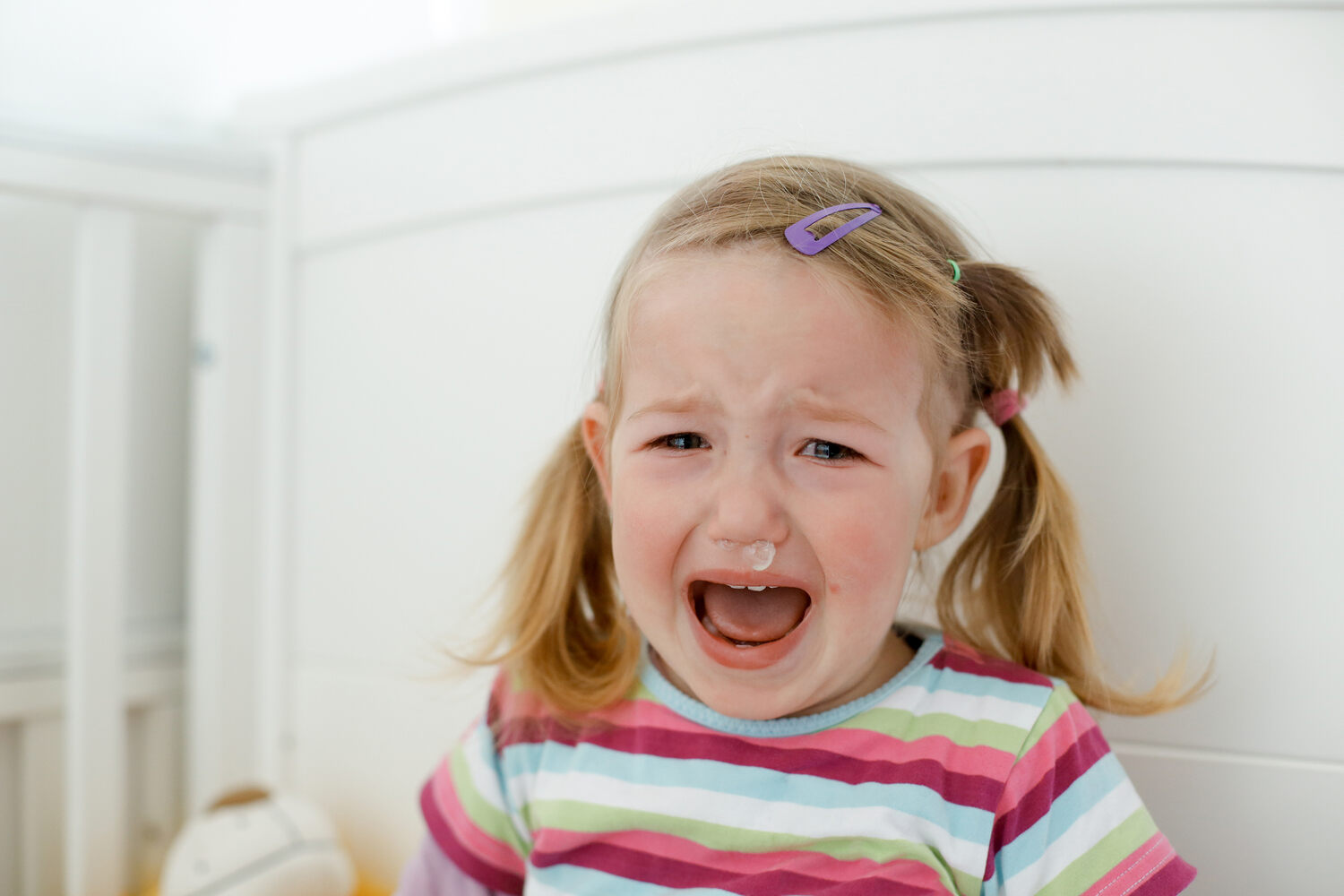
Many factors can contribute to the development of headaches in toddlers. Some of them are:
- Infections and illnesses: Common illnesses like the cold, flu, sinus, and ear infections can lead to headaches. Meningitis and encephalitis are rare causes
- Trauma: Any injury to the head can cause minor headaches. Falls need immediate attention, though
- Genetic predisposition: Headaches due to migraines tend to run in families
- Emotional factors: Anxiety and stress in toddlers can cause headaches in tiny tots
- Food and beverages: Certain food preservatives, like nitrates, can trigger headaches in toddlers. Good additives like MSG and too much caffeine in sodas and chocolates are also known to cause headaches (5)
- Pathology in the brain: Very rarely, any issues in the brain, like a tumor or an abscess, can be a cause for headaches too
How Are Headaches Diagnosed in Toddlers?
Diagnosing a headache is done by a thorough medical history and physical examination. A thorough neurological examination by a specialist helps determine the possibility of a headache. A series of blood tests, CT scans, MRI scans, etc. are useful to confirm a primary headache.
It is appreciable to keep a headache diary listing the frequency, duration, things the toddler might have eaten that triggered the headache, and some other symptoms that accompany a headache, or appear before a headache, etc. This will simplify the diagnosis process.
How Are Headaches Treated in Toddlers?

The treatment depends on the age, severity, overall health of the toddler, and nature of the headache. The primary headaches can be handled easily.
- Most of the headaches are harmless and will disappear with proper rest
- A cold compress or ice pack on the forehead will help to reduce the pain and discomfort
- Make your toddler rest in a quiet, dark room
- If the pain does not settle, then give them painkillers like ibuprofen and paracetamol, as advised by their doctor
- A confirmed migraine headache requires some more medicines, like triptans. It is better to consult your pediatrician about it
- Keep your toddler away from certain food triggers that can cause headaches
- Making a few lifestyle changes for your toddler can help keep headaches away. They include getting enough night sleep, eating on time, and proper water intake
- Deep breathing exercises help keep them stress-free
When to Consult a Doctor?
When you notice that the frequency of headaches in your toddler has increased, or if they have a severe headache, then it’s better to take them to a doctor. Any accompanying symptoms like fever, vision changes or stiffness in the neck, also need immediate attention. When the headache is a result of a fall or head injury, it is important to take the toddler to the doctor as soon as possible.
Tips to Prevent Headaches in Toddlers

Parents can help prevent headaches in toddlers by following some simple steps, like:
- Practicing healthy eating habits and avoiding trigger foods
- Reducing the screen time
- Never let the toddler skip a meal
- Staying physically active
- Make sure that they rest and sleep properly
- Identify, reduce, and eliminate the factors causing strain
- Keep a headache diary for kids who frequently have migraine attacks. This way, the parents can identify the factors triggering migraines
Headaches in your toddler can have a huge impact on their day-to-day life. They can even cause a change in their personalities and be a reason for their low school attendance. Gentle care and proper medical attention can help prevent the cause and help them lead a normal and healthy childhood. If you see your toddler struggling with headaches, then it is better to consult their doctor.
FAQ’s
1. How do Headaches Affect my Child’s Brain? Will They Damage My Child’s Brain?
No, headaches will not cause any brain damage in your toddler. There is no negative effect of a headache on your toddler’s brain.
2. Are Headaches a Sign That my Kid Has Diabetes?
Headache is not a direct symptom of diabetes. Although, a decrease in blood sugar can lead to a headache in toddlers, which is a symptom of diabetes.
3. Who Will Treat my Child’s Headache? Will They Need to See a Specialist?
You need to see your toddler’s pediatrician or your family doctor. If needed, they might refer your kid to a neurologist, eye specialist, or an ENT specialist to rule out other causes.
4. Will Headaches Affect my Kid’s Normal Life?
Severe and frequent headaches can disrupt your toddler’s normal life. Headaches can disturb their school and social lives.
5. Do Children Outgrow Headaches?
Some headaches become less severe and less frequent with age. Most of the toddlers outgrow their headaches.
6. When Should I Take My Kid to The Emergency Room?
If the headache is accompanied by symptoms like extreme weakness, dizziness, confusion, vision changes, fever, nausea, and vomiting, then it’s better to take your little one to the emergency room.
References
- Headache in School Children: Prevalence and Risk Factors – [https://www.ncbi.nlm.nih.gov/pmc/articles/PMC3865491/]
- Migraine headache in children – [https://www.ncbi.nlm.nih.gov/pmc/articles/PMC3275150/]
- Primary Headaches in Preschool Age Children: Clinical Study and Follow-Up in 163 Patients – [https://journals.sagepub.com/doi/full/10.1111/j.1468-2982.2005.01008.x]
- FAMILIAL OCCURRENCE OF MIGRAINE HEADACHES Study of Heredity -[https://jamanetwork.com/journals/archneurpsyc/article-abstract/651845]
- Diet and Headache: Part 1 – [https://headachejournal.onlinelibrary.wiley.com/doi/abs/10.1111/head.12953]
